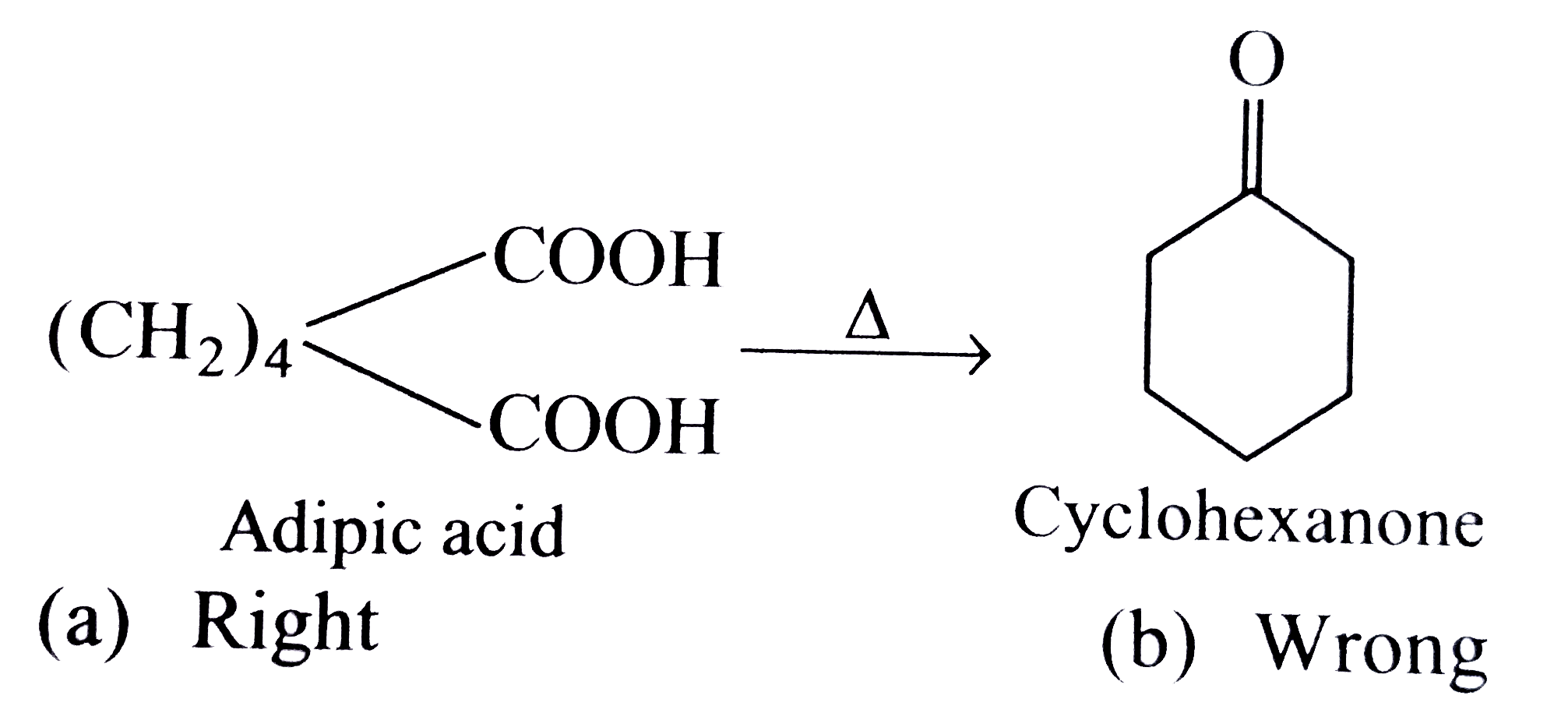Metastannic Acid on heating gives
SnO
Sn(OH)Cl
SnO2
SnCl2
The correct Answer is:C
H2SnO3Δ−−→SnO2+H2O
Topper's Solved these Questions
- CHEMISTRY OF HEAVY METALSBOOK - NARAYNACHAPTER - CHEMISTRY OF HEAVY METALSEXERCISE - SINGle Answer Questions(LEVEL-II)
36 Videos
- CHEMISTRY OF HEAVY METALSBOOK - NARAYNACHAPTER - CHEMISTRY OF HEAVY METALSEXERCISE - Level III Single Answer Questions
13 Videos
- CHEMISTRY IN EVERYDAY LIFEBOOK - NARAYNACHAPTER - CHEMISTRY IN EVERYDAY LIFEEXERCISE - ASSERTION & REASON TYPE QUESTIONS
10 Videos
- CO-ORDINATE COMPOUNDS BOOK - NARAYNACHAPTER - CO-ORDINATE COMPOUNDS EXERCISE - Exercise-4
60 Videos
Similar Questions
Variety of products are obtained when dicarboxylic acids are heated. The nature of product depends on the carbon chain length seperating the two carboxylic groups.
(I) 1 ,2 and 1,3-dibasic acids on heating give monocarboxylic acid
(II) 1,4 and 1,5-dibasic acids on heating give cyclic anhydride
(III) 1,6 and 1,7-dibasic acids give cyclic ketones.
Indicate whether the following reactions are right or wrong.

View SolutionVariety of products are obtained when dicarboxylic acids are heated. The nature of product depends on the carbon chain length seperating the two carboxylic groups.
(I) 1 ,2 and 1,3-dibasic acids on heating give monocarboxylic acid
(II) 1,4 and 1,5-dibasic acids on heating give cyclic anhydride
(III) 1,6 and 1,7-dibasic acids give cyclic ketones.
Indicate whether the following reactions are right or wrong.

View Solution
Knowledge Check
Malonic acid on heating gives :
Aformic acidBacetic acidCoxalic acidDacetaldehydeMalonic acid on heating gives acetic acid while succinic acid on heating gives
Abutyric acidBpropionic acidCsuccinic anhydrideDoxalic acidMalonic acid on heating gives ......... while on decarboxy-lation gives ......... .
Aacetic acid, ethaneBpropanoic acid, methaneCpropanoic acid, ethaneDacetic acid, methane
Variety of products are obtained when dicarboxylic acids are heated. The nature of product depends on the carbon chain length seperating the two carboxylic groups.
(I) 1 ,2 and 1,3-dibasic acids on heating give monocarboxylic acid
(II) 1,4 and 1,5-dibasic acids on heating give cyclic anhydride
(III) 1,6 and 1,7-dibasic acids give cyclic ketones.
Indicate whether the following reactions are right or wrong.

View Solutionβ−Hydroxy propanoic acid on heating gives acrylic acid.
Acrylic acid exists in two diastereomers.
View SolutionA dibasic organic acid (A) on heating gives (B). The compound (B) on soda lime treatment gives the lowest alkane which can be prepared by Wurtz synthesis. The compound (A)
View SolutionOrthophosphoric acid on heating gives :
View SolutionOrthophosphoric acid on heating gives
View Solution
